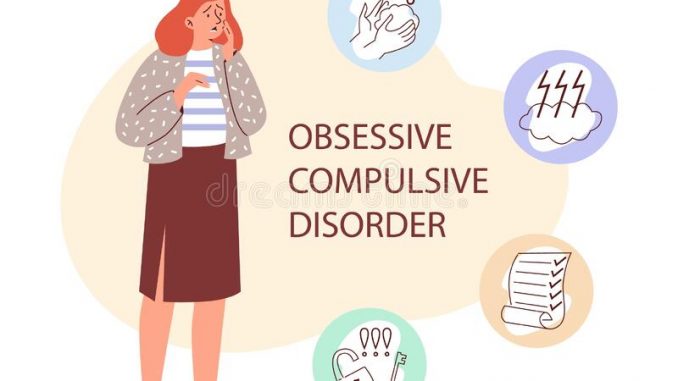
Lara Murray-Sterzel, Staff Writer |
When we feel we do not have control, it can be overwhelming and even frightening. As college students, we are always trying to keep up with our busy schedules while trying to maintain a social life. Whether it be homework, chores, or hanging out with friends it is hard at times to balance your responsibilities. Because of this, people create routines and make lists, so they know what their next move is; But sometimes seeing everything on the lists becomes even more stressful and overwhelming. If you have ever felt like this, do not be afraid because NAMI may have the answers to your questions.
On Thursday, Oct. 27, NAMI was accompanied by Dr. Stephanie Poplock, a licensed counseling psychologist, clinical social worker, and teacher of Advanced Social Psychology here at SUNY Oneonta. The collaboration held a panel focused on the topic of OCD. NAMI discussed OCD being characterized by repetitive unwanted intrusive thoughts which can be seen as obsessions and irrational obsessive urges which emerge in childhood, teens, or adulthood. Thoughts of harming yourself or someone else, doubts about doing something correctly, or fears of doing something bad can be too painful to the point of suicide for some. Dr. Poplock tries to introduce mental health challenges as a continuum from a normative behavior to something offbeat to another person.
An example Dr. Poplock gave to students is by seeing OCD as a daily routine, such as the way you button your shirts, how you eat corn on the cob, or how you brush your teeth. Her point is to understand someone who has OCD, we must start with something we can relate to. The obsession these people have is enough to provoke anxiety and stress. While OCD does not have a cure, it can be managed in many ways. One of those ways of breaking their intrusive thoughts is by facing them. By experiencing them they can learn to tolerate the distress they have. This teaches people who have OCD they will be fine without having to act on compulsions. Another example Dr. Poplock gave was sitting on the bathroom floor and eating a sandwich. Many would agree that it is gross, but it helps people with OCD face the worst possible outcome and how you cannot prevent bad things from happening.
With this and more information given by NAMI, students were able to walk away with a better understanding of OCD. If you or anyone you know has any questions, NAMI encourages you to visit Oneonta’s Counseling Center or reach out to them through email. If you are interested in joining NAMI, go to the Corq app to view when their next meeting will be. NAMI also encourages students to participate in their community cleanup event on November 13.
Leave a Reply